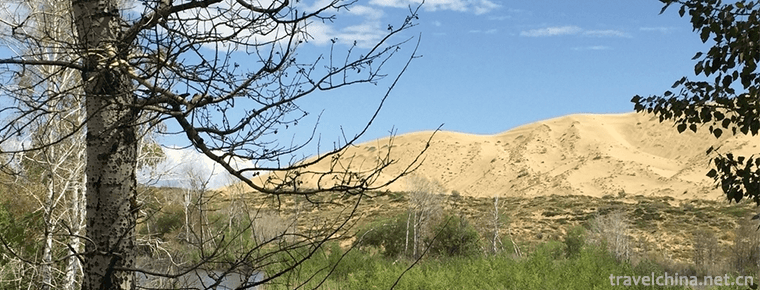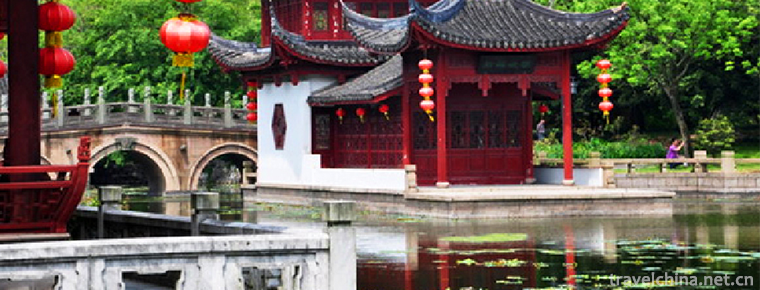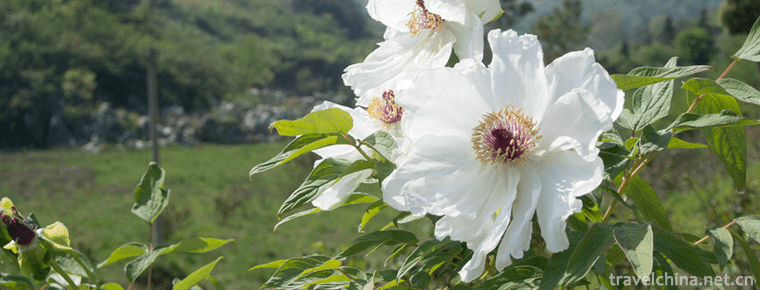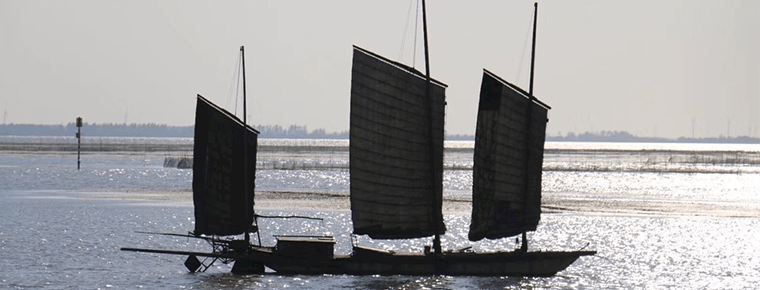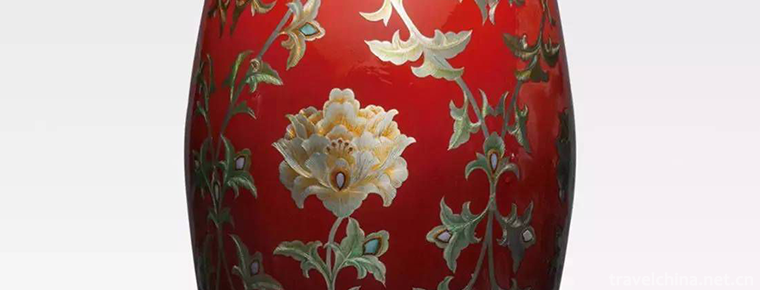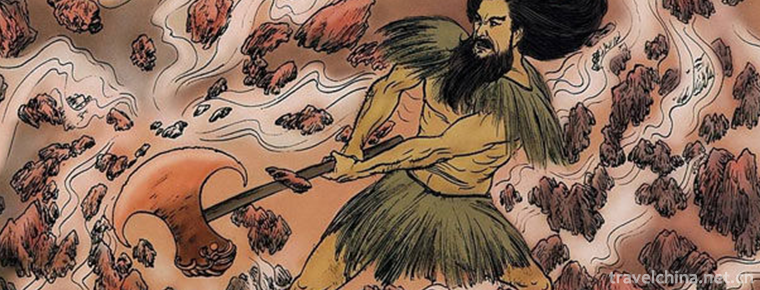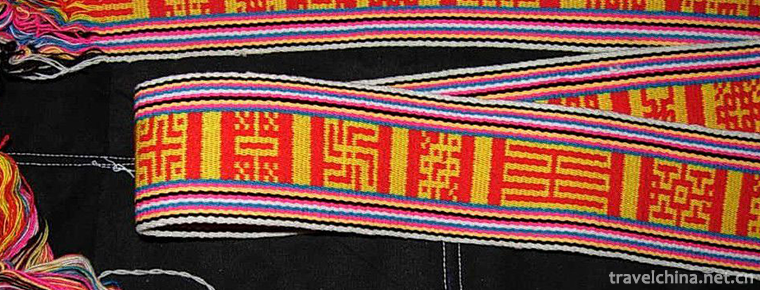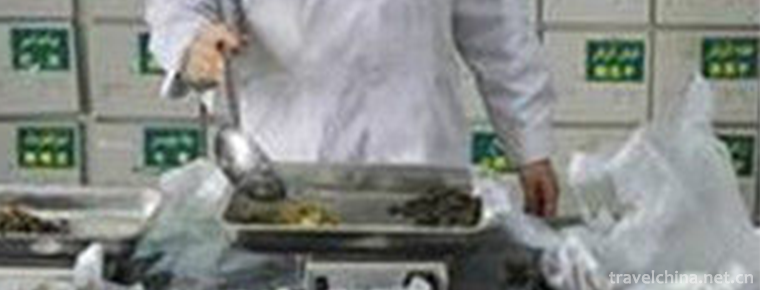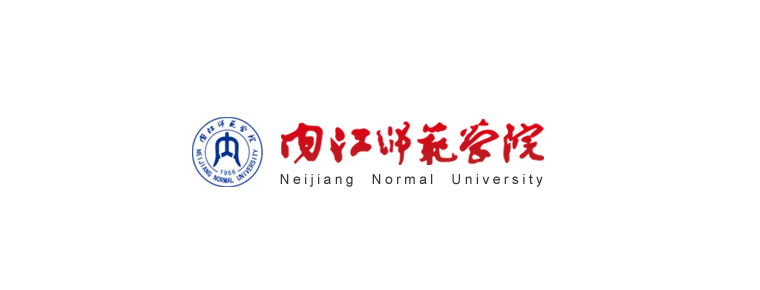Yao Opera
Yao Opera
Yao Opera, a local traditional drama in Yuyao City, Zhejiang Province, is one of the national intangible cultural heritage.
Yao Opera is popular in Yuyao, Cixi, Ningbo, Zhoushan, Shangyu and Shaoxing. It developed on the basis of folk singing and dancing "horse lantern", "dry boat" and "tea basket". At the beginning, it was a duo-zi opera which was close to rap. It was called "lantern opera" or "lantern class" in the area of Yuyao. Yao Opera is known as the "Parrot Song Class" because its language is popular, fluent and clear, and its singing tone is close to spoken language. One or two lines of lyrics often sing along with each other, and its tune is natural, just like bird language.
On June 7, 2008, Yao Opera was approved by the State Council of the People's Republic of China to be included in the second batch of national intangible cultural heritage lists. The heritage number is IV-108.
historical origin
Yao Opera, a local opera of Tanhuang type in Wu language family, originated in Yuyao, Eastern Zhejiang Province, and originated from local folk singing and dancing such as "car lantern", "tea basket", "dry boat" and "sparrow, winter and winter". It was formed in the mid-17th century. Following the singing in Yuyao dialect, it is commonly known as "Yuyao Tanhuang", short for "Yao Tan", also known as "Parrot Opera".
As early as the Qianlong reign of the Qing Dynasty, "Yao Tan" professional class club has been popular in Yuyao, Cixi, Shangyu urban and rural areas. It is called "Lantern Opera" or "Lantern Class" because of its performances around the "Lantern Festival". Among them, Yuyao Yonghe (now belonging to Cixi) is the most talented class in history. "Beach" not only prevails in the locality, but also spreads outward continuously. Peach blossoms, Liuheng, Shenjiamen in Zhoushan in the east, Shaoxing, Xiaoshan and Zhuji in the west, Xinchang and Shengxian in the South (Shengzhou today), Haiyan and Tongxiang in Beida, and even Shanghai, they performed in Huaxing Garden in cooperation with the artists of "Xiao Opera Band" (the predecessor of the Yue Opera Band Society). " "Yao Tan" artists Ma Nanben, Zhou Lanying, Lou Amu, Yueyuehong, Xiaoshanbao, Daguixiang, etc. are listed in the "Yongleiyuan", "Hushenglou", "Ruyilou" and other performance venues. They have been very popular among the audience of Ningshao Band in Shanghai.
In the 1930s, Xiao Shanbao and Da Guixiang sang the play "Selling Small Sugars", which was recorded by Gaoting Company. In its heyday, there were more than 20 professional classes in Yao Tan. In the old days, because "Yao Tan" performers often used to criticize the current situation by inserting criticisms and needles in their performances, and because the plays were mostly about expressing the personal feelings of men and women and striving for marital autonomy, they were banned repeatedly as "parrot brothers'pornography" by the authorities. Many performers suffered persecution and were in a desolate situation. Especially after the outbreak of the Anti-Japanese War, the situation became worse and worse because of the turmoil. By the eve of liberation, "Yao Tan" class club had little left, dying. At that time, there was a Yao Tan Ban Society named "De Sheng Shun Stage", which used the pretext of "Shao Xing Ban" (Shao Opera), performing Shao Opera in the first half of the night and Yao Tan in the second half of the night to maintain the survival of the opera.
In 1953, with the attention of Zhejiang Cultural Bureau and the support of Yuyao County Cultural Museum, 17 "Yao Tan" artists such as Huang Chengbing formed the "Yuyao Tan Reed Group". In 1956, "Yuyao Tanhuang" was named "Yao Opera". In September of the same year, with the approval of Zhejiang Provincial Bureau of Culture and Sports, a professional "Yuyao Yao Opera Troupe" (the only professional performing group of this type so far) was set up, which has entered a new stage of the historical development of Yao Opera. In the middle and early stages of Yao Tan, Danjiao was played by men, singing in a combination of false voice and true voice. Until the 1930s, female Danjiao actors appeared and gradually changed the phenomenon that male Dandan occupied the stage of Yao Tan. For example, Liu Furong, who later became one of the pillars of "Yuyao Tanhuang Group" and "Yuyao Yao Opera Troupe", was the outstanding representative who initiated Yao Opera with female Danjiao. Actors such as Huang Chengbing, Huang Liquan and Zhang Changshui, who played Danjiao in the past, gradually changed their roles and occasionally appeared as male Danjiao. For example, Sun Chunyang (male dan), the "Yao Tan" champion, played the role of wife in the modern Yao Opera "Geophysical Frontier" in Shanghai in the 1960s. His performance was humorous and interesting, and was highly praised by audiences and experts.
In 1957, Chen Yuxiang, a theatrical cadre of Zhejiang Qunyi Museum, compiled and directed Yao Opera "Chicken Crows at Midnight" for the Yao Opera Troupe according to the relevant chapters of the novel "Gao Yubao", which was a well-known repertoire in the provincial opera festival that year. Since then, the troupe has insisted on compiling modern operas, such as "Magnolia Baishou", "Riding Wall", "Phoenix Bridge", "Red Lantern Zhi", "Lei Feng", "Jiao Yulu", "Cypress Slope", "Happy Events of Trouble", "Robbers and Nuns", "Sand Court Tears", "Chuanshen Tower", "Dragon Iron Head Out Mountain", "Chicken Gongshan Style" and "Daughter Daughter". A large number of modern operas, such as Peach Blossom, have won awards for many excellent creative plays in various stages of performance, and enjoy a high reputation both inside and outside Zhejiang Province. At the same time, Yao Opera also pays attention to drawing nourishment from brothers'operas, especially from Shanghai Opera, Xiju Opera, Yongju Opera and other Tanhuang Opera, and transplants suitable repertoires for this opera, such as "Biluo Huangquan", "Double Push Mill", "Half a pair of scissors", "Heaven Wants Rain Niang to Marry", "Trial of Three Counties" and "Yang Naiwu and Pakchoi". It has become a conservative repertoire of Yao Opera.
The Yuyao Yao Opera Troupe was founded in September 1956. In the course of nearly half a century, it has experienced four historical stages: from the establishment of the troupe to the first stage in 1966. Taking Huang Chengbing as the head of the group and the old artists of Yao Tan as the backbone, we should carry forward the enterprising spirit of arduous struggle and transform the "Yuyao Tan Spring" which used to be performed with only four rice barrels and eight door boards into a regular local opera. We should persist in compiling and performing modern operas and persist in serving peasant brothers in mountainous and rural areas. It has laid a solid foundation for the development of Yao Opera in many ways by working diligently and thriftily and actively cultivating the new generation of Yao Opera actors.
From the outbreak of the Cultural Revolution in 1966 to the second stage before the Third Plenary Session of the Eleventh Central Committee in 1978. In the meantime, a large number of Yao opera workers were either relocated to their homes or forced to change careers, while those left behind entered the "Wenxuan Team". In October 1976, with the collapse of the Gang of Four and the gradual revival of the literary and artistic circles, Yao Opera reform began. In November 1976, after reorganization and reconstruction, the "Yuyao County Wenxuan Team" was renamed "Yuyao Yao Opera Troupe", and some former Yao Opera workers returned. Immediately, new and old Yao operas such as Maple Leaf Red, In Silent Place, Xianglin Mao, Jiang Jie, Shuangtui Mill, Dog Killing, False Entry and False Exit, Autumn Fragrance Delivery Tea, Midnight Chicken Bark, etc. appeared one after another. The audience was surging and the grand occasion was unprecedented. Yao opera art ushered in the second spring.
Since June 1979, Shen Shouliang, who was born as an actor, has been the third stage of Yao Opera's rapid development in the past ten years. At this stage, the troupe devoted itself to the creation of large-scale modern and Contemporary Dramas and the improvement of their comprehensive artistic quality, and made arduous efforts to win a place in the theatre field of Yao Opera both inside and outside the province. With the joint efforts of Yao Opera workers, the large-scale modern historical drama "Robbers and Nuns" won the first prize at the 2nd Zhejiang Drama Festival. Since then, large-scale productions such as "Sand Field Tears", "Wild Myrica rubra" and "Tales of Peach Garden" have made great achievements in various provincial and municipal drama festivals. At the same time, the Provincial Department of Culture gave great support to Yao Opera and funded the "Ningbo Opera (Yao Opera) Training Course" to train and transport a new generation of artistic successors for Yao Opera Troupe.
Since March 1988, Shou Jian became the head of the delegation, which initiated the fourth historical stage of Yao Opera's sustainable development and its brilliance. In 2001, the large-scale Yao Opera Modern Drama "Daughter is Big, Peach Blossom Blossoms" was rehearsed with unprecedented manpower, financial and material resources, and strived for excellence. It appeared in eight universities such as Shanghai Jiaotong University, East China University of Technology, East China School of Political Science and Law, Shanghai Normal University and Shanghai Theatre College in a brand-new way.
Cultural characteristics
Musical Aria
Musical aria consists of two parts: basic tune and minor. The basic tunes are relatively rich. There are still dozens of kinds of tunes that can be sung. There are two kinds of tunes commonly used: Pingshi and Tightboard. Minor tunes are mostly local folk songs and Jiangnan folk songs, such as "Send the needle tune", "Tong Zilang", "Half hum" and "Send the Lang to the Flower Ten". These minors are not only used in conjunction with the basic tones in a play, but also are exclusive minors combined with minors. They have a lively and lively singing voice and a stronger flavor of life.
Accompanied instruments
Yao Opera accompaniment instruments in the early stage were mainly Tanhuang Erhu, with three strings and Yueqin. After the founding of the People's Republic of China, Gaohu, Weipa, bamboo flute, dulcimer, violin, clarinet, flute and Sheng were gradually added.
Clothing props
In the early period, Yuyaotan was responsible for the stage with rice barrel bottom, only one table and two chairs as props. The costume man wore a watermelon cap or Shaoxing felt cap, a long shirt or bamboo skirt, and only a waist apron and colored skirt at the corner, pretending to be a false head. A class club only has a pair of Erhu and a pair of Jiashadan, which are mobile performances all over the country. After entering Shanghai, clothing and props have been improved, but they are still simple. After the founding of the People's Republic of China, it has gradually developed into a scale with a complete set of lighting, scenery, clothing and props.
Performing action
In terms of acting action, Yao Opera is characterized by strong flavor of life and rich local flavor. Actions are vivid and natural, such as water-carrying weaving, boat-rocking, push-grinding, etc., close to life movements and slightly dancing, with a strong sense of rhythm. After the founding of the People's Republic of China, he learned from other operas such as stage steps, gongjia, stature, martial arts, horse trips and sleeves, and also from live dramas, thus enriching and improving the stage art.
Character and profession
The role of the line should be divided into "flower face" and "Dantang". "Flower Face" means all the horns, regardless of age, culture and military, but there are identities. Scholars or people with wealth status wear melon skin caps and long gowns, which are called "Flower Face of Long Shirts" (also known as "Flower Face of Clean Clients"), while lower-class workers wear bamboo skirts, short shirts, wearing Shaoxing felt caps or brushing broom caps, which are called "Flower Face of Short Shirts". (Also known as "grass face"). "Danjiao" is divided into "Shangdan" and "Xidan", "Shangdan" is a woman with identity or old age, and "Xidan" is a young woman.
Representational repertoire
The traditional repertoire of Yao Opera is known as "seventy-two copies". Most of them are traditional operas, similar to Tanzan operas. For example, before and after "meeting in an alley", "falling hair", "borrowing cloak", "returning cloak", "garbage" before and after. "Window Building", "Ten Bans", "Selling Grass", "Selling Green Carbon", "Selling Winter Vegetables", "Selling Small Sugars", "Selling Pomegranates", "Danghu Ship", "Land Cakes", "Autumn Fragrance Delivery Tea" and so on. Most of these plays are dress-up or fashion shows with simple plots. Others are characterized by acrobatics, such as Ding Bowl Ji and Big Bang Lantern.
Inheritance and Protection
Inheritance value
Yao Opera has the characteristics of opera and art which are close to the times, life and the masses. It has long been popular among the large rural audiences in eastern Zhejiang, and has had a positive impact on Shaoxing Tanhuang, Tongxiang Huagu Opera, Xiaosong Band and other local operas.
Heritage figures
Shen Shouliang, male, Han nationality, was born in January 1943 in Wucheyan, Huangjiabu Town, Yuyao City, Zhejiang Province. In June 2009, Shen Shouliang was selected as the representative successor of the third batch of national intangible cultural heritage projects and declared by Yuyao City, Zhejiang Province.
protective measures
On the one hand, Yuyao City consolidates and expands the performance market, performing nearly 20 Yao operas and about 160 Yao operas every year. It also invested in supporting the creation of original Yao Opera repertoire, and created excellent local operas such as Yao Opera Modern Opera "Mother", "May Myrica Red" and "Romantic Village", "Wang Yangming" with the progress of two years'production of a new opera. On the other hand, a display platform is built. Regular exhibition activities have been organized to create "Weekend Theatre" and other brand performances, so that Yao Opera can be more people-friendly, and ordinary people can enter the theatre to enjoy the wonderful performances of famous Yao Opera masters. In urban and rural areas of the city, Yao Opera Friendship Club and Ticket Friendship Club are also used as non-governmental organizations to organize activities such as friendship, observation and discussion. So far, three consecutive Yao Opera Singing Competitions have been held in Yuyao and Cixi areas.
social influence
Important performances
In June 2012, the eighth generation of actors in Yao Opera Performance Professional Class officially appeared on the stage, performing the Yao Opera "The Legend of White Snake".
On April 15, 2018, Yao Opera Wang Yangming, produced by the Yao Opera Preservation and Inheritance Center of Yuyao City, Ningbo, was performed on the natural stage.
Honorary recognition
In May 1991, Zhuan Opera, as the only selected drama in Zhejiang Province, went to Yangzhou to participate in the national modern opera performance.
It has received unanimous praise from the judges of the Congress and the delegates from all over the country.
In 1993, "Dragon Iron Head Out of Mountain" was awarded the honorary nomination prize of "Five-one Project" by the Ministry of Propaganda and Publicity, which was the first time that Zhejiang Province won the prize of "Five-one Project" in the whole country at that time. In the same year, he also won the Excellent Performance Award of the Fifth Zhejiang Drama Festival, and the second prize for script, director and dance design.
In 1995, Jigongshan Style was awarded the Excellent Performance Award, Excellent Drama Award, Excellent Director Award, Excellent Music Award and Excellent Dance Design Award at the Sixth Zhejiang Drama Festival.


-
Baisha Lake Scenic Area
Baishahu Lake is one of the important scenic spots in Qianli Gallery in Altay, Xinjiang. It is 100 kilometers from Habahe County, 260 kilometers from Altay Airport, 150 kilometers from Kanas Airport.
Views: 138 Time 2018-12-12 -
The Grand View Garden Area of Shanghai
Shanghai Grand View Garden is located at 701 Qingshang Highway, Qingpu District, Shanghai. It is situated on the west side of Dianshan Lake, 65 kilometers away from downtown Shanghai..
Views: 149 Time 2018-12-19 -
Yashan Huahai Stone Forest
Yashan Huahai Stone Forest Tourist Area, located in Nanling County, Wuhu City, Anhui Province, is one of the important scenic spots in Anhui's "two mountains and one lake" tourism economic c.
Views: 160 Time 2018-12-20 -
Beijing Hangzhou Grand Canal
Beijing-Hangzhou Grand Canal is the longest and largest ancient canal in the world. It is also one of the oldest canals. It is called three great projects in ancient China together with the Great Wall.
Views: 147 Time 2018-12-22 -
Jiangshan Peninsula Tourist Resort
Jiangshan Peninsula Tourist Resort is a provincial tourism resort development zone approved by the People's Government of Guangxi Zhuang Autonomous Region in 1994..
Views: 166 Time 2019-01-21 -
Xuanzhen Ancient Cave Ecotourism Area
Xuanzhen Gudong Ecotourism Area is located in the north of Qingxin County, about two kilometers away from Qingyuan City. The area of the whole scenic area is 7.8 square kilometers..
Views: 242 Time 2019-02-26 -
Chengdu lacquer art
Chengdu lacquer art, the traditional handicraft of Chengdu City, Sichuan Province, is one of the national intangible cultural heritage..
Views: 158 Time 2019-04-18 -
Pangu Myth
Pangu myth, the local traditional folk literature of Tongbai County and Biyang County in Henan Province, is one of the national intangible cultural heritage..
Views: 405 Time 2019-06-08 -
Qiang embroidery
Qiang embroidery evolved and developed on the basis of inheriting the ancient Qiang people's embroidery. Mainly distributed in Wenchuan County, two towns and four townships (Mianfu Town, Weizhou .
Views: 107 Time 2019-06-10 -
Uygur Medicine
Uygur Medicine magazine provides medical workers with good opportunities for education, continuing education and academic exchange platform, and is committed to improving the comprehensive quality of .
Views: 286 Time 2019-06-26 -
Neijiang Normal University
Neijiang Normal University is a full-time general undergraduate college organized by Sichuan Provincial People's Government. Neijiang City, where the school is located, is located in the middle of Che.
Views: 172 Time 2019-08-31 -
Notes on Tourism in Ganzi Prefecture
1. Ganzi Prefecture is characterized by Tibetan culture, snow mountain and grassland scenery, with high average sea level. Most people will have altitude reaction when they go to Ganzi Prefecture. To prevent and deal with altitude reaction, please refer to the precautions for altitude reaction..
Views: 73 Time 2020-12-06
